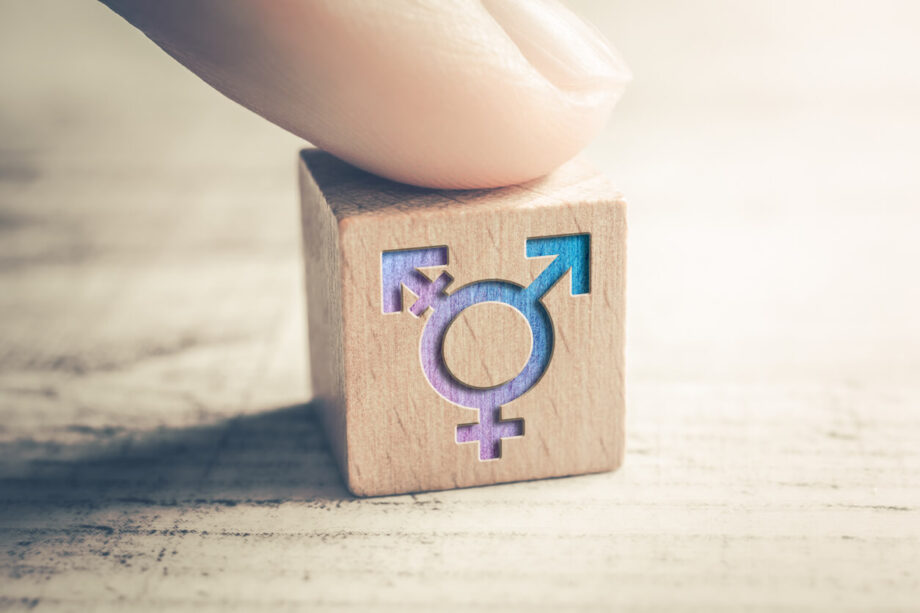Words hold power. The language we use to describe our experiences, needs, and identities are multifaceted and often ripe with emotion. As a former English teacher, I find words and the histories around them endlessly fascinating.
Every culture and community adds their own facet of understanding what words mean and blend their experiences with a common understanding of how a term is defined.
A word’s meaning isn’t about what we can put down on paper as its definition, it is about what a word does as it moves in our bodies and across our lips. The visceral connections terminology makes when we say it aloud with our mouths or sign it with our hands is something that defies explanation.
In the kink community, we often use terminology that has been passed down for generations and which have deep roots in our collective history as kinksters (a term coined by Eli Sheff and Corie Hammers). For people outside of the kink community, some of these words can appear to be confusing, upsetting, or offensive.
We may casually use words like Domination, Master, slut, and brat to describe our roles in kinky play and relationships. Many of these terms elicit a negative response from folks who do not understand or identify with them or their dynamics. These reactions can be based on how these terms are used outside of kinky context and for their stereotypical gender roles they illicit.
Read: 5 Ways to Help With Gender Affirmation
In the aspect of gender, we are asked to examine whether any identifier is actually tied to a binary role or if kink already goes beyond gender constructs. As society awakens to a need to expand our understanding of gender many people who live within the intersections of gender-queer spaces and the kink community are asking just that:
Are kinky terms gendered? What are gender-neutral kink terms?
For years there have been distinctions in gender and power play titles. For example, a partner who is dominant is either a Dom (male) or Domme (female). A submissive partner is usually simply the submissive and gender is not addressed.
Some submissive subcategories such as sissy, slut, and sugar-baby were often gendered but because of the kink community’s reluctance to conform to a social standard, hardly anyone bats an eye if anyone of any gender decides to take on a particular role/title.
As a non-binary person myself, I feel that exploring developing additional, truly gender-free terms could be beneficial. Language is an organic and ever-evolving experience, as the kink community expands and looks to examine who we have a history of excluding and increasing inclusive practices, we need to be open to seeing the areas we need to infuse anti-oppressive frameworks. Exploring how gender constructs can limit kink inclusion is one important step in that direction.
Both historically and in the present day, many queer cis-women, trans, and non-binary folks have paved new paths when it comes to gendered terminology and kink. For example, by embracing terms often seen in the mainstream as "masculine" such as Sir and Daddy/Daddi these forerunners challenged the gender box of kinky spaces and helped to enlighten fellow kinksters to the truth that identity is personal and so are the terms we decide to reject or embrace.
On Reddit, users discuss adding honorifics that are used in other contexts that both command authority and are used for people of any gender. Examples from users include “your Majesty,” “Reverend,” “Captain,” and “Commander.” Other message boards suggested “your Honor,” and “my Liege.”
While these may be technically gender-neutral they still will call to mind a male role as for so much of human history positions of power were only assigned to hyper-masculine cis-males. Is then this a matter of reclaiming the words we personally prefer, or should we come up with new terminology all together?
On TransTalk a user compiled a list of gender-neutral terms by mixing gendered terms to create new ones. Though not directly connected to kink titles they give an idea of how old terms can be blended into new ones: Dommy (mix of dad and mommy), Enbyfriend (a mix of non-binary and friend instead of boy/girlfriend), and Goddex (a blend of God and Goddess).
Read: Gender Neutral Sex Toys: What They Are and Why They Matter
When people have negative connotations with terms that other members of a community find affirming or empowering this can create a deep rift between the two camps.
The question then becomes how do we create kinky spaces that allow for each person to express their individual identity while maintaining a sense of emotional safety for all; as in the concept of "safe spaces," the questions remain, safe for whom and by who’s standard?
Perhaps the answer lies in the nuance of individual choice and preference. Yes, we can keep the common terms such as dominant and submissive and yes we can additionally play around with new terminology.
There may be words long forgotten that will be relearned and reclaimed. All of these options are good options, it really will be a matter of allowing space for each person, community, and partnership to decide fits best for them. By personally exploring our individual relationships with our own gender identity and expression and melding our findings with terms and descriptors that best fit our experiences we can find language that best fits us and our communities and perhaps coin some new terms along the way.
Dr. Laura McGuire (they/them or she/her) is an internationally recognized consultant, survivor, researcher, seminarian, and author of the book Creating Cultures of Consent (Rowman & Littlefield, 2021). Dr. McGuire is a certified full-spectrum doula, professional teacher, a certified sexual health educator, and a vinyasa yoga instructor. Their experience includes both public and private sectors, middle schools, high schools, and university settings. They currently are earning their Masters of Divinity at Earlham Seminary where they are studying the intersections of Judaism, trauma-informed care, and restorative-justice in faith settings. Dr. McGuire lives in the United States, where they work as an adjunct professor at Widener University and consultant at The National Center for Equity and Agency.




